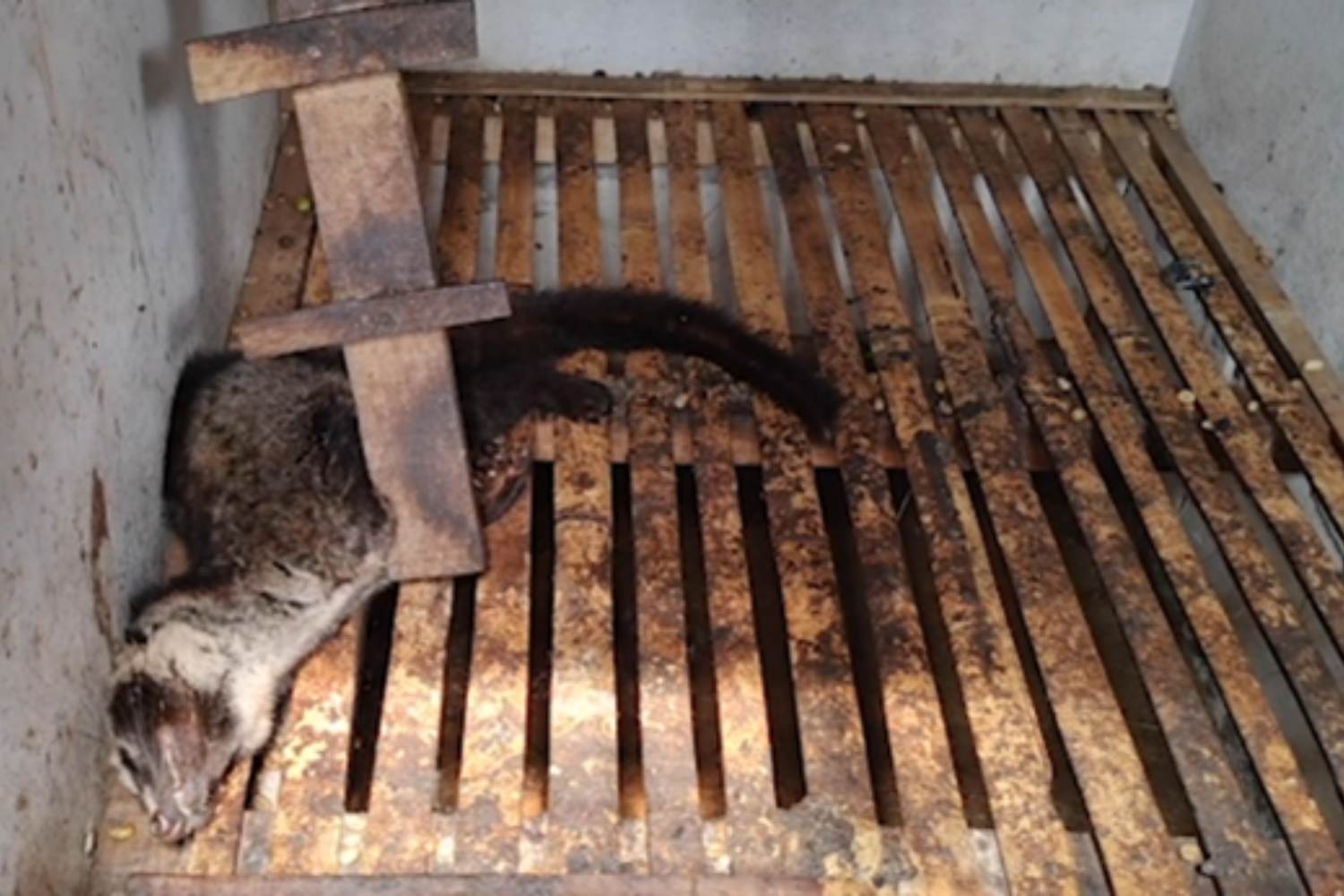Bali's popular Kopi Luwak coffee tours hide a cruel reality of caged civets and animal exploitation behind the exotic "wild" coffee marketing.

During a vacation in Bali, many tourists choose to participate in a guided tour that promises to reveal the island’s wonders: breathtaking landscapes, rice terraces, traditional villages, and visits to a coffee plantation, with the opportunity to taste the famous Kopi Luwak.
Marketed as a premium and rare coffee, sold for up to $85 per cup, Kopi Luwak attracts visitors with its curious origin story. But what really lies behind this exotic beverage? Behind the scenes of “civet coffee” isn’t artisanal production at all, but a supply chain fueled by animal exploitation, misinformation, and unconscious tourism.
Kopi Luwak is produced from coffee beans ingested and then expelled by palm civets, small nocturnal mammals. In theory, these would be free animals that choose only the finest berries. In practice, they are often confined in cramped cages, deprived of freedom and forced into a diet consisting exclusively of coffee berries.
Supporting a system based on forced detention of wild animals
These tours, seemingly harmless, contribute to supporting a system based on the forced detention of wild animals in poor sanitary conditions with serious consequences for their health: malnutrition, fur loss, chronic stress, and compulsive behaviors are commonplace. Marketed as natural production, Kopi Luwak is often a charade, where the “wild” label is merely marketing: many beans come from civets in captivity, and in some cases even from protected species.
The tourist narrative almost never mentions these aspects. Visitors find themselves tasting a “traditional” product without knowing they’re feeding a cruel mechanism that has nothing to do with Balinese traditions. Beyond the ethical problem, there’s also a health risk: stressed, sick animals kept in poor conditions can potentially carry zoonotic diseases, as has happened in the past.
Making informed choices
A plantation visit may seem like a unique experience, but it’s important to research and make informed choices. If you want to explore Bali’s coffee culture, you can do so by supporting ethical production without fueling the Kopi Luwak industry. Tourism should be a bridge between cultures, not a means to justify animal exploitation.
